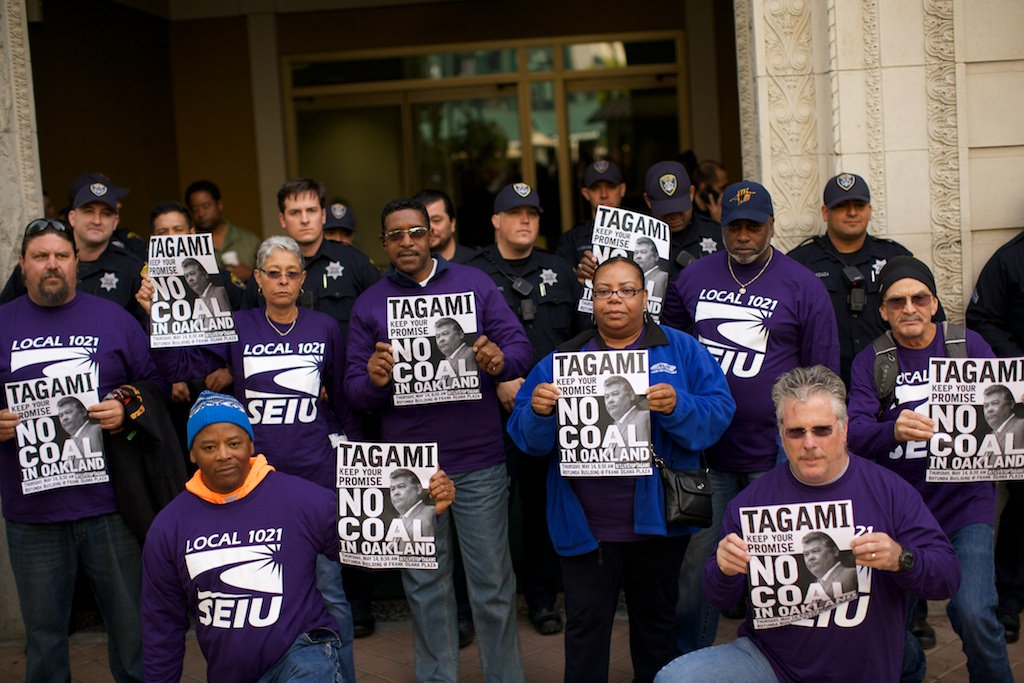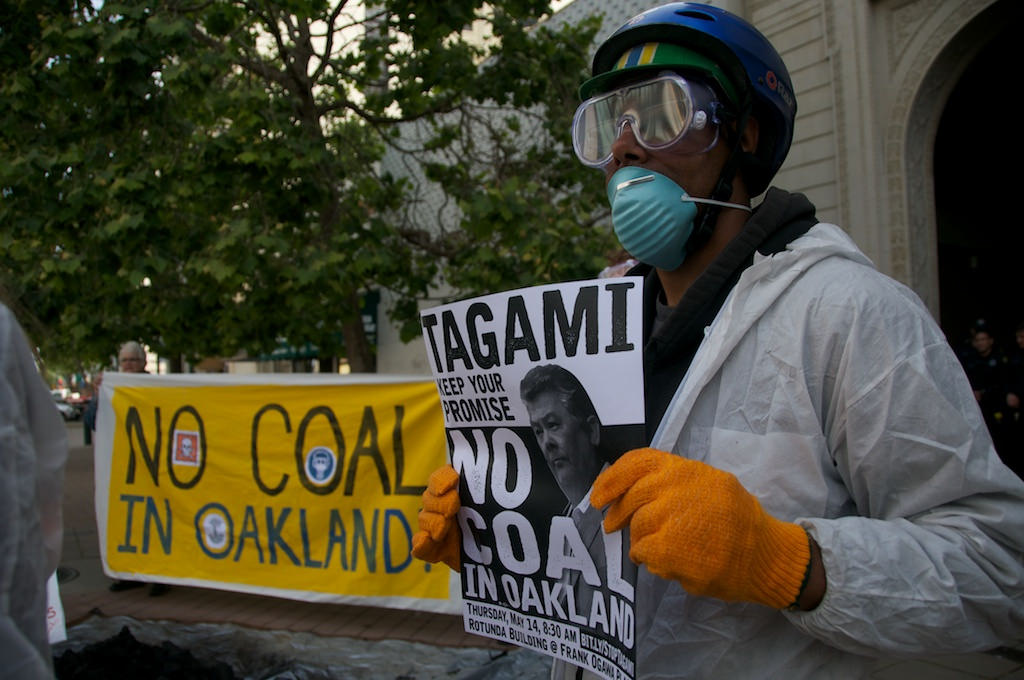Lynette McElhaney Puts Damper on Tagami’s Coal Plan
May 18, 2015

By Ashley Chambers
News has spread of developer Phil Tagami’s plan to negotiate a deal with four counties in Utah to ship coal to a new export terminal at the Oakland Army Base that could begin operation as early as 2017.
However, opposition by city officials and community activists indicate tat they are many in the city who have no intentions of allowing the greenhouse gas producing material to be exported from the city’s port.
Last month, the Utah Permanent Community Impact Fund Board approved a $53 million loan to the four counties – Sevier, Sanpete, Carbon and Emery – to lease a large share of the Oakland terminal to export five to six million tons of coal each year.
Moving forward with this project would directly conflict with a resolution passed by the Oakland City Council last year “opposing the transport of coal, oil, petcoke (a byproduct of the oil refining process) and other hazardous materials by railways and waterways within the city.”
Council President Lynette Gibson McElhaney, whose district includes West Oakland, the Oakland Army Base and the Port of Oakland, has voiced her opposition to the export of coal from city land, saying, “West Oakland cannot be subjected to another dirty industry in its backyard.”
“We were told that this new terminal on city property would increase economic growth, but I see coal exports as the Trojan horse in the development of the Oakland Army Base. It is not the type of economic development that we want – no thank you!”
McElhaney said, “Since coal was not contemplated to be exported when the Army Base Development project was approved, the community has not yet had the chance to make their voices heard on this subject. This is unacceptable.”
Last year, Port Commissioners voted to reject a proposal to construct a coal export terminal.
Activists rallied Thursday across from Oakland City Hall in front of the Rotunda building – where Tagami’s California Capital & Investment Group (CCIG) is located – demanding that the developer keep the promise he made to bring no coal into Oakland.
“CCIG is publicly on record as having no interest or involvement in the pursuit of coal-related operations at the former Oakland Army Base,” Tagami wrote in a 2013 newsletter.
Coal is one of the largest producers of carbon dioxide. The health impacts of bringing this fossil fuel to the city would affect residents, workers at the port, and disintegrate the global environment.
Former Port of Oakland executives Omar Benjamin and Jerry Bridges, who were supporters of the failed coal terminal proposal in 2014, are involved in the project with Tagami and recently met with the West Oakland Environmental Indicators Project (WOEIP) and explained their plans to use “clean” coal.

They said they would use clean, contained cargo shipping train cars that will be unloaded inside contained warehouses. Clean coal refers to the process of capturing and storing carbon dioxide emissions underground.
It has also been said that coal would be covered on the trains to reduce the spill of coal dust.
However, these efforts will not eliminate the health effects that the West Oakland community will be exposed to, according to many.
Jess Dervin-Ackerman, Conservation Manager of the Bay Area Sierra Club, said harmful health impacts would take effect immediately “in a community already overburdened with air pollution, and diesel particulates from trucks, trains, and ships.”
Residents would experience higher risks of asthma, heart and lung disease, and cancer from “one of the dirtiest energies on the planet,” she said.
Local residents would be exposed to coal dust and diesel particulates in the air that they can easily breathe in, even through walls, and enter into their lungs and blood stream, explained Dervin-Ackerman, a resident of Emeryville.
“We have to be moving away from these fuels if we want to have food and a world to live in that isn’t blazing hot, or flooded under rising sea levels, ” said Brian Beveridge of WOEIP.